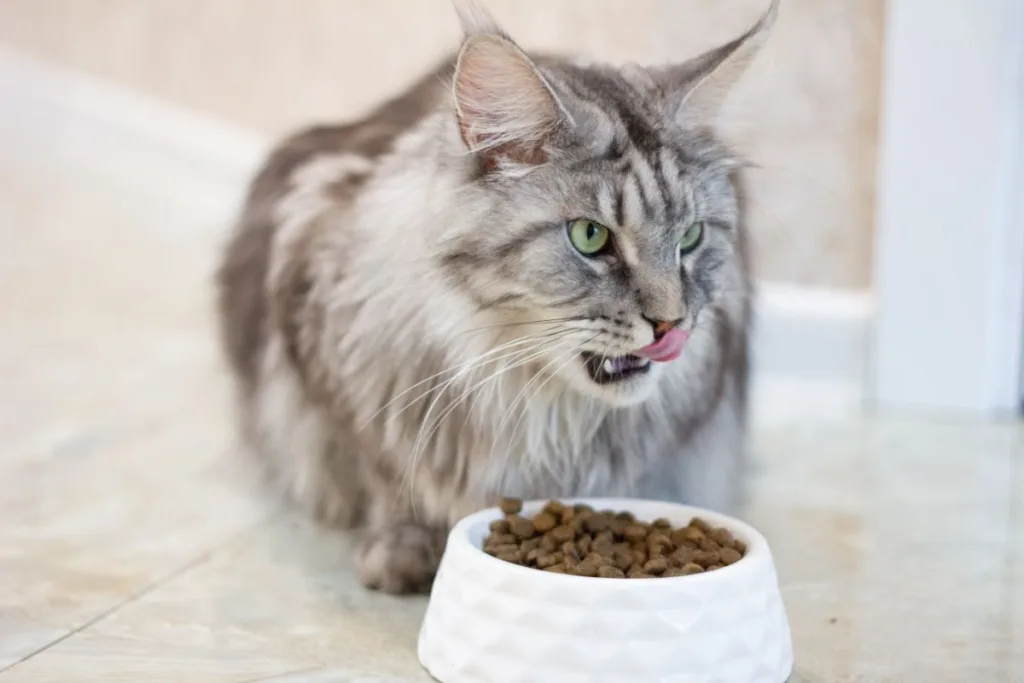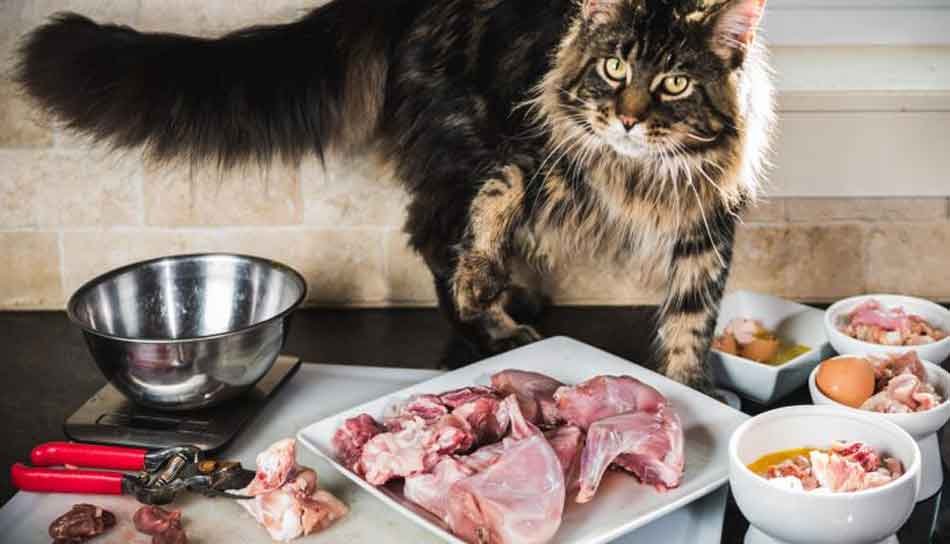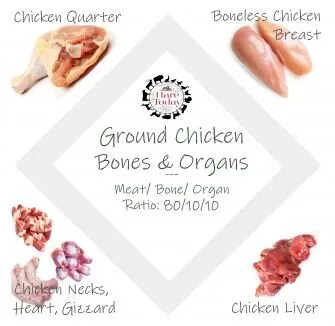Maine Coon Diet
Maine Coon Diet: Providing Optimal Nutrition for Your Feline Friend
Maine Coon Diet, like all cats, are obligate carnivores, meaning they rely on nutrients found only in animal products. These majestic felines evolved as hunters, consuming prey with high protein, moderate fat, and minimal carbohydrate content. Their diet still requires these proportions today, along with more than a dozen other essential nutrients such as vitamins, minerals, fatty acids, and amino acids. To maintain their health, it is crucial to feed Maine Coons a diet that is high in moisture, rich in protein, and low in carbohydrates.
Feeding Your Maine Coon
Dry Food
Taste Of The Wild (Green Bag) is left out at all times (24/7) for free feeding. However, we recommend offering kittens a daily treat in addition to dry food.
Daily Treat
For kittens, we suggest a properly balanced raw diet once a day. If raw feeding is not an option, you can consider a mixture of 1 can of Friskies with 1 cup of dry food. Remember, a balanced raw diet is the healthiest option, ensuring your cat receives all the necessary nutrients. We purchase prepackaged “Ground Chicken From HARE-TODAY,” which provides a whole diet for your cat. You can also add Friskies canned food for picky eaters.
Immunity Support
To support your cat’s immune system, respiratory health, and eye health, we recommend Tomlyn Immune Support L-Lysine Powder Cat Supplement. This veterinarian-formulated supplement is safe and effective for cats of all ages, making it especially beneficial for kittens dealing with the stress of relocation to a new home.
The Benefits of a Balanced Raw Diet
We highly recommend feeding Maine Coons a properly balanced raw diet. When raw feeding is well-balanced, it provides numerous benefits, including higher muscle mass, a healthier coat, a lower risk of certain diseases, and a longer life expectancy. Switching to raw should not upset your cat’s stomach, and we buy prepackaged “Ground Chicken From HARE-TODAY” to ensure a convenient and well-balanced diet for your cat.
Understanding the Feline Diet
Cats have no dietary need for carbohydrates, as their bodies process and store carbs as fat. A diet heavy in carbohydrates can stress their digestive system and hinder the efficient absorption of protein. To thrive, cats need adequate animal protein to meet their daily requirements. If they don’t get enough protein, they may break down their own muscle mass to obtain essential nutrients, leading to health issues. Satiety in cats is linked to the ingestion of sufficient animal protein, and a lack of it may cause overeating and weight gain.
Additionally, cats cannot synthesize eleven essential amino acids, along with vital nutrients like taurine, vitamin A, vitamin D, and the fatty acid arachidonic. They must obtain these nutrients from their diet, emphasizing the importance of providing a balanced and nutritious meal.
Selecting the Right Cat Food Brand
When choosing cat food, look for brands with an AAFCO-approved nutritional guarantee and adherence to WSAVA guidelines. Avoid canned foods that contain peas, lentils, other legume seeds, or potatoes as the main ingredients. Limited grain content, such as corn and rice, is acceptable.
WSAVA Guidelines
The World Small Animal Veterinary Association (WSAVA) offers valuable guidelines for selecting quality cat food:
- Evidence of scientific formulation
- Extensive testing
- Quality control through in-house manufacturing
- Research to meet long-term nutritional needs, subject to peer-review
What to Avoid in Cat Foods
Avoid the “BEG” diet – Boutique brands, Exotic ingredients, and Grain replaced with pulse:
- Boutique brands: These are pet food manufacturers that lack a qualified team of experts for diet formulation, relying on marketing trends instead of nutritional research.
- Exotic ingredients: Ingredients not traditionally found in pet foods, such as kangaroo, buffalo/bison, ostrich, alligator, duck, lamb, salmon, venison, and rabbit.
- Grain replaced with pulse: Traditional grains have been replaced with legume seeds like peas, lentils, various beans, and chickpeas. This has been linked to the development of certain heart conditions.
Expert Advice on Raw Diets
A balanced raw diet includes flesh, organs, bone or ground bone, and a small amount of vegetation. Aim for meats that closely resemble what cats would eat in the wild, such as mouse or rabbits. This balance ensures a proper calcium-to-phosphorus ratio, with bone providing essential minerals like copper and zinc. Remember, cats cannot live on meat alone, and their calcium source is ideally from bone rather than supplements. Raw bone is highly digestible and rich in calcium, minerals, and enzymes. Avoid feeding cooked bones as they can be dangerous.
The FDA’s Warning on Grain-Free Diets
In June 2019, the FDA issued a warning about the potential link between certain grain-free diets and Dilated Cardiomyopathy (DCM) in cats and dogs. Reports indicated that diets containing peas, lentils, other legume seeds, or potatoes as main ingredients were associated with DCM, even in breeds not genetically prone to the disease. While cases of DCM in pets are relatively rare, it is essential to be cautious and consult a veterinarian for advice on your pet’s diet.
The Importance of Proper Nutrition for Your Maine Coon
As responsible cat owners, providing the right nutrition for our Maine Coons is vital to ensure their overall health and well-being. A balanced raw diet offers numerous benefits and closely aligns with their natural dietary needs as obligate carnivores. By following expert advice, choosing reputable cat food brands, and being cautious with trendy diets, we can help our beloved feline friends live long, happy, and healthy lives.
The Importance of Exercise and Portion Control
While providing a proper diet is essential, it’s equally crucial to ensure your Maine Coon gets enough exercise. Regular playtime and interactive toys can help keep your cat active and mentally stimulated. Exercise not only helps maintain a healthy weight but also prevents boredom and behavioral issues.
Portion control is another factor to consider, especially for indoor cats prone to weight gain. Free-feeding dry food can sometimes lead to overeating, which may result in weight issues. Instead, consider offering measured portions of dry food throughout the day or alongside interactive feeders that encourage slower eating.
Supplementing with Taurine
Taurine is a vital nutrient for cats, and while a balanced raw diet usually provides sufficient taurine, supplementation may be necessary for certain health conditions. However, supplementing taurine to a grain-free diet is unlikely to work, as some component in the diet prevents proper absorption. Instead, focus on providing high-quality protein sources like hard-working muscle meats, heart, and sardines, which are natural sources of taurine.
Consulting Your Veterinarian
It’s always best to consult with your veterinarian before making any significant changes to your cat’s diet. A veterinarian can assess your Maine Coon’s health, nutritional needs, and any specific dietary requirements based on their individual characteristics and medical history.
Raw Food Feeding Resources
If you’re considering switching to a balanced raw diet for your Maine Coon, several reputable resources can guide you through the process:
- Feline-Nutrition.org
- PerfectlyRawsome.com
- DogAware.com: Raw Foods for Dogs (Also applicable to cats)
These websites provide valuable information, recipes, and guidelines to ensure your cat receives a nutritionally balanced raw diet.
Staying Informed and Updated
As scientific research continues, new information about feline nutrition and health may emerge. Stay informed and keep up with the latest findings by following updates from reputable sources, such as veterinary associations and respected research institutions.
Providing your Maine Coon with a well-balanced and species-appropriate diet is crucial for their overall health and well-being. As obligate carnivores, they thrive on diets rich in protein, moderate in fat, and low in carbohydrates. A properly balanced raw diet offers numerous benefits and closely mimics their natural diet.
Remember, it’s essential to choose cat food brands that meet AAFCO nutritional guidelines and adhere to WSAVA recommendations. Avoid trendy diets with exotic ingredients or excessive carbohydrates, as they may not meet your cat’s nutritional requirements.
Be aware of the FDA’s findings on grain-free diets and DCM, and consult your veterinarian if you have any concerns about your cat’s diet or health.
By staying informed, providing proper exercise, and seeking guidance from your veterinarian, you can ensure your Maine Coon lives a happy, healthy, and fulfilling life as a cherished member of your family.



